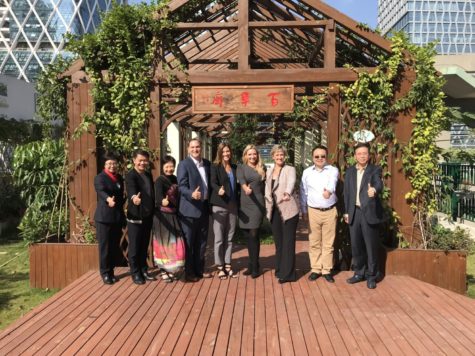Plot Twist! The Vegans are Right
Across the globe it appears there has been a flood of people committing to a vegan diet. The rise in awareness of documentaries such as “Earthlings” and “Cowspiracy,” that outline the detriments associated with the meat industry have turned people away from consuming meat. Since 1960, the average amount of meat a person eats has quadrupled along with the vast increase of the amount of animals raised. The Food and Agriculture Organization of the United Nations has predicted that by 2050 meat production will double as the demand for meat exponentially increases. Along with this, the estimated population by 2050 of 9.4 billion will result in a decrease in water availability as water supplies are used for agricultural farming. If these predictions have yet to incite concern, it will become evidently clear of why a vegan diet is beneficial and necessary to the environment and livelihood of the human population.
The planet has experienced an indisputable increase in temperature and decline of natural resources directly correlated to the consumption of meat and the land used to feed, home and cultivate the animals in the meat industry. Agriculture consumes about 70% of fresh water worldwide—approximately 1000 liters (L) of water are required to produce 1 kilogram (kg) of cereal grain whilst it takes 43,000 L to produce just one 1kg of beef. According to David Pimentel’s scientific journal, Water Resources: Agricultural and Environmental Issues, animal agriculture water consumption ranges from 34-76 trillion gallons annually. Livestock and their byproducts account for 51% of all worldwide greenhouse gas emissions. There can be no denying of the detriments associated with the meat industry. Billions of animals and their waste products contribute greatly to global warming with their CO2 emissions—even more so than the transportation sector. Even without the usage of fossil fuel, according to Food Choice and Sustainability: Why Buying Local, Eating Less Meat, and Taking Baby Steps Won’t Work, we will exceed our 515 gigatonnes CO2 limit by 2030 just by raising animals. This is an issue that every person will have to confront making a vegan lifestyle necessary.
A vegan diet offers a plethora of health benefits including the prevention of cardiovascular diseases, cholesterol, blood pressure, type 2 diabetes, arthritis, several cancers, osteoporosis and the list goes on. The average American consumes a whopping 209 lbs of meat annually, this is about double of what is necessary for a healthy diet. The World Health Association conducted dietary studies and concluded that those who eat more meat had higher risks of developing cancers as opposed to those who do not eat meat; vegans had a 40% less chance of getting cancer. A diet composed of high-fat items such as meat and dairy products results in an increase in production of estrogen which encourages cancer cell growth in the breasts. Eliminating animal products will benefit one greatly.
Opponents of a vegan diet often argue that it is expensive and that vegans do not have a significant impact. However, many are comparing the cheap and unhealthy dollar menus at fast food chains to the wholesome food items in a vegan diet. Evidently, food that is not even created with real ingredients, will be much cheaper than produce. To reduce this cost one can buy non-name-brand products and optimize sales. According to Meat Eater’s Guide to Climate Change and Health, published by the Environmental Working Group, on a daily basis vegans save 1,100 gallons of water, 45 pounds of grain, 30 square feet of forestland and 20 lbs equivalent to CO2 and one animal’s life. In addition, they produce 50% less carbon dioxide, uses 1/11 oil, 1/13th water and 1/18th land compared to meat eaters. One and a half acres of land can produce 37,000 pounds of plant based food whilst one and a half acres can only produce 375 pounds of meat. In opposition of those who refute the significance of veganism, the ecological footprint of a person who is vegan is exceptionally smaller than meat eaters.
Becoming vegan is not an easy choice, it is a strict diet and often at times, tempting to just cheat and not care. Nonetheless, being vegan is crucial in creating a better, cleaner planet. A vegan diet saves a vast amount of land that is used in nurturing animals. Being vegan is something that everyone must try at least once as it offers a prevention of health issues such as cancers and high blood pressure and is necessary in preserving Earth and offering a better cleaner Earth for future generations.
Hello there! Our goal is to provide relavent, engaging journalism for readers of all ages. Your donation will support the student journalists of the Wolfpacket at Claremont High School, and will allow us to purchase equipment, print our monthly issues, and enter in journalism competitions. We appreciate your consideration!

Paulina Gonzalez is currently a senior at Claremont High and it is her second year on the Wolfpacket. She is serving as the head Opinions editor and is...









